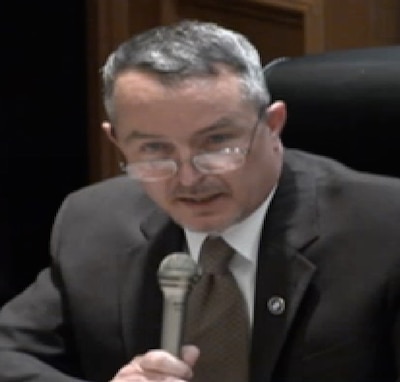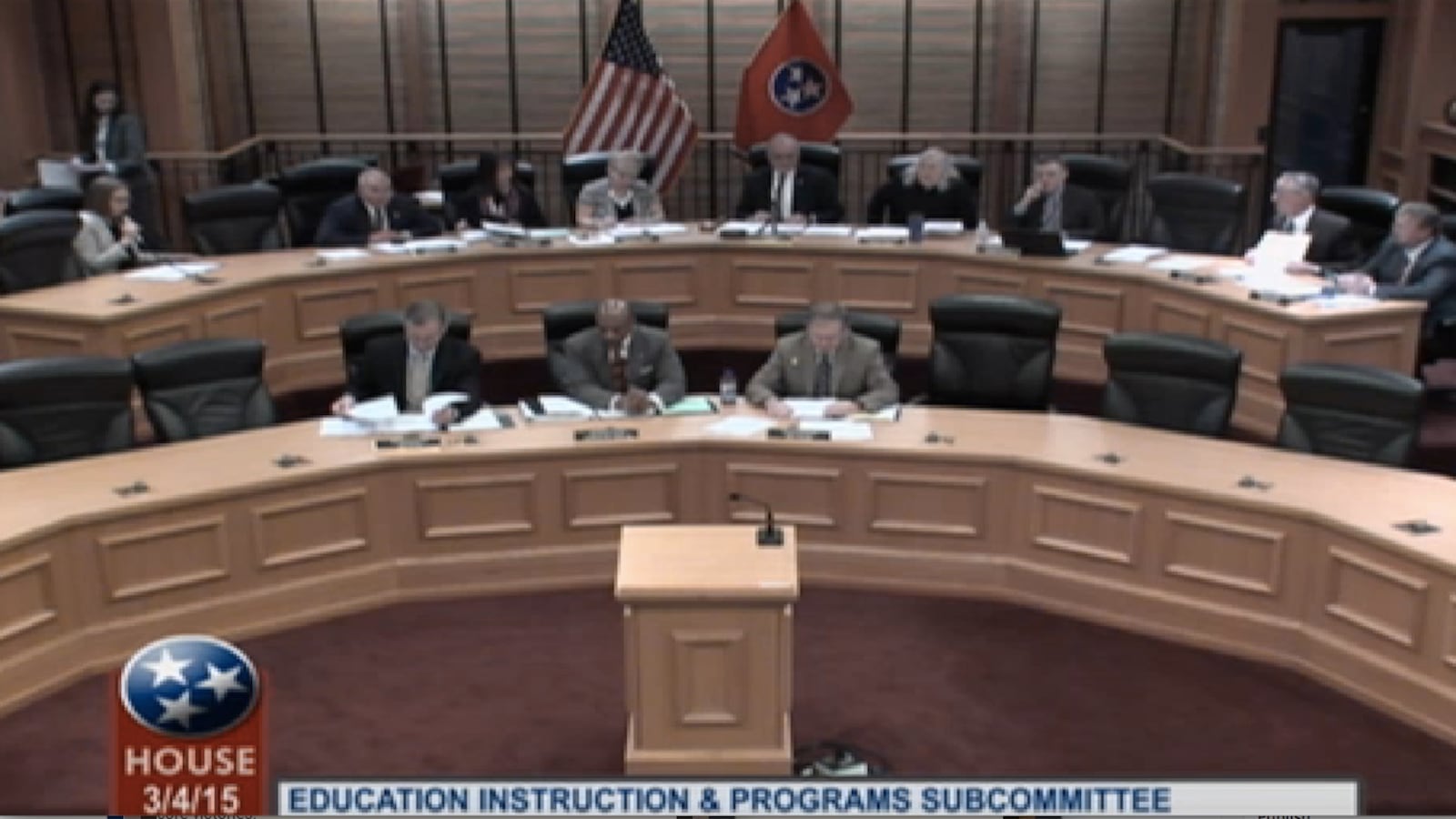The sponsors of a bill to remove the Common Core State Standards in Tennessee announced Wednesday that they’ll go back to the drawing board in an effort to avoid another costly transition to new academic standards. Instead, they’ll seek to incorporate recent legislative feedback in a new proposal that would expand the standards review process to more subjects.
Rep. Billy Spivey (R-Lewisburg), a co-sponsor of the bill, told the House Education Instruction and Planning subcommittee that more discussion is needed before moving ahead, especially considering the original bill’s $4 million fiscal note.
“We’ve got to be good stewards, and we’ve got to address this issue in a way that everybody in this state doesn’t have to suffer just because of the political wish of someone like me,” Spivey said.
This was the second time the bill has been pulled from the subcommittee’s agenda as sponsors regroup. In February, citing an “epiphany,” Spivey asked bill sponsor Rep. John Forgety (R-Athens) to hold off on a vote so lawmakers could confer with Gov. Bill Haslam’s administration, which last year launched a review of the standards that is similar to the review that Forgety’s bill calls for. They hoped to see if their respective review processes could be aligned, rendering the bill unnecessary.
On Wednesday, Forgety told the subcommittee he is drafting a new bill that doesn’t override the governor’s review process and includes science and social studies, in addition to math and English language arts – the subjects covered by the Common Core. “We’re attempting to provide for you another piece of legislation that would be more inclusive, that would possibly accommodate many more folks and many more concerns and we feel like would be amenable to considerably more people,” he said.
Spivey said Forgety wants to move beyond language arts and math because his focus is larger than repealing Common Core. It’s about creating more inclusive and better standards as a whole. Standards in Tennessee already are reviewed every six years, Spivey noted, so bolstering the review process won’t necessarily cause a spike in costs.
“We’re not creating anything new,” Spivey said.
The change of heart signals that Tennessee’s Common Core critics are stepping back from the political backlash building for the last year against uniform academic benchmarks across the nation. Although the standards are rooted in a 2008 bipartisan, state-led review in which most of the nation’s governors and state education commissioners weighed in, critics increasingly had perceived the standards as a directive from Washington, D.C. The eventual rollout of Common Core in 2009 was funded with federal Race to the Top money provided by the Obama administration, allowing states to voluntarily adopt the standards, which Tennessee did in 2010 and began using in some classrooms in the 2012-13 school year.

Forgety said the intent of his bill always has been to make sure teachers have a voice in the academic standards by which they must teach. Forgety and Spivey said they balked at the bill’s $4 million estimated cost to the state, however, and think that expanding the existing review process would save money.
The governor’s review of Common Core is scheduled for completion this year. Since last November, all Tennesseans have been able to go online and vet the standards and offer suggestions. This summer, teachers appointed by the governor will join consultants to conduct their own review and make recommendations to the State Board of Education by the end of 2015. It’s not clear to what extent the governor’s review process, with or without additions from the legislature, could squelch the Common Core.
In the last month, Haslam and a chorus of educators have asked the legislature to hold off on changing the Common Core and to continue the current review process to fruition. Educators in Tennessee, who have weathered several sea changes in the last decade, say they need more stability – not more change.

Spivey — who strongly believes that Tennessee needs standards created by Tennesseans, with “Tennessee values embedded in them” — said the wishes of educators were heard. “The typical governmental approach to a problem is [to] charge into battle with bayonets,” he said, which can lead to “unintended consequences.” Spivey said he expects better results through a careful review instead of a hasty repeal.
Proponents of the governor’s current Common Core review were heartened by the decision to shelve Forgety’s bill for now.
“We were concerned about House Bill 3 – concerned that it was not in the best interest of students, and concerned about the requirement that Tennessee start over for standards,” said Teresa Wasson, spokeswoman for the State Collaborative on Reforming Education, a Nashville-based educational advocacy group and think tank founded by former U.S. Sen. Bill Frist.
“We think the best approach for students is the process that’s going on right now. Review, refine, and raise is our approach, so we’ll be watching to see what comes next,” Wasson said.
In other business, the subcommittee approved a bill that would halt the scheduled state closure this year of four Memphis charter schools on the state’s most recent priority list of low-performing schools. The measure would make 2017 the first time that charters on the state’s priority list would be shuttered.
The Senate Education committee passed House bill 1049/Senate bill 999, with eight members voting in favor, no votes against, and only one senator passing. A nearly identical bill, sponsored by Sen. Kelsey, passed the committee in February, with two passes. The Senate Education committee also saw a bill that would have permitted “parent trigger,” in which parents petition for a school turnaround. After some discussion, Sen. Kelsey, who introduced this bill, decided to postpone the proposal for two weeks, while he considers increasing the percentage of parents who would have to sign the petition for action to occur. The Tennessee bill required 51 percent of parents’ to sign; a similar law in California requires 60.
Contact Grace Tatter at gtatter@chalkbeat.org.
Follow us on Twitter: @GraceTatter, @chalkbeattn.
Like us on Facebook.
Sign up for our newsletter for regular updates on Tennessee education news.


